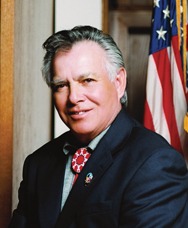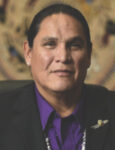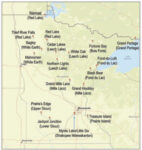
With the establishment of gaming in Minnesota in the early 1990s, the Shakopee Mdewakanton Sioux Community (SMSC) had the good fortune to be the closest reservation to Minneapolis-St. Paul, and therefore opened the state’s most lucrative casino. Chairman Stanley Crooks explains how stable leadership in the tribe and a vision to aid the less fortunate in the community spurred a charitable and entrepreneurial program, in which the Shakopees invest in enterprises designed by other tribes, is unmatched in Indian Country today. Crooks spoke with Tribal Government Gaming Publisher Roger Gros from his offices in Shakopee in December.
What inspired the tribe to begin to give back to the community once the gaming revenues started to roll in?
Most of the members of our tribe, and certainly the leadership, went through some very tough times economically prior to gaming. We recognized groups that had helped us before gaming and we wanted to support them. We started modestly, sharing our extra revenues with them. I think in the first year, it was something like $3 million. Now our charitable donations reach more than $21 million a year.
Your community giving is deep and diverse. From health-care organizations and conservation to public broadcasting and boys & girls clubs and even public schools, the tribe is very generous. How do you make decisions about the organizations you support financially?
It comes from the vision of our council. We go to our membership and lay out our budget, which includes our donations and loan packages. They approve our plans, and we make those decisions. Our criteria are very generous when considering what organizations we’ll consider.
One of the most impressive roles SMSC plays is supporting other tribes that may not be as fortunate as them. What are some of the things you do to assist those other tribes?
Well, even though a tribe is successful or not doesn’t mean they can request a grant or a loan. It depends on the purpose. It’s usually economic development or job creation projects or one-time costs that are outside of their budgets.
We have a law firm that does due diligence for us and evaluates the plan before we go ahead and make the loan. If we determine that it’s a solid plan with a good chance for success, then we offer a reasonable interest rate and repayment terms.
Does it matter what the tribe’s circumstances are? Gaming or non-gaming? Remote location?
We step in when a tribe may have gone to a bank for a loan and gotten rejected. That bank might think the loan was too risky even though there’s an ability to repay the loan. When they make a proposal, we evaluate those, and look at it the same way as a bank. If we think that project will be successful and the tribe will be able to repay it, and benefit from it, we’ll be a little more flexible than a bank might be.
We’ll look at all aspects of revenues the tribe has, whether it’s timber, minerals, land leases or gaming revenue. Most of the loans are to tribes in the Great Plains area. We start with Minnesota tribes and then our regional tribes. We consider it nation-to-nation loans.
Our philosophy is that we want to help tribes get through difficult times or raise money to start or expand businesses. We don’t want to do some joint venture and share in their profits, but we wanted to make it easier for them to get the money they need to do what they think is right for their tribe, whether it’s economic development projects or job creation.
Economic diversification is an important part of any tribe’s economic plan. How does the SMSC reflect that?
Gaming under IGRA was always supposed to be a supplemental source of revenue, which the tribes could spend as they see fit, without any strings attached like you get with government grants or loans. IGRA envisioned that money going to health, education and welfare. But that also includes economic development projects.
Tribes that don’t have a big land base or a favorable location must look to diversification because gaming will sustain them for a period of time, but it might drop off at any time due to political whims or other issues.














